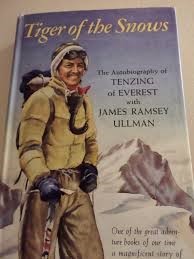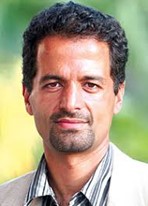
This art form merits special mention, as to UK audiences there will be little awareness that Nepal and Nepali literary genius have little connection with 2020’s UK, even though, in fact H.E. Dr Durga Bahadur Subedi, Ambassador of Nepal to the UK and to the Republic of Ireland, has a Nepal and international level greatly respected name as a man of letters, as illustrated by Dr Subedi’s book, translation of ‘Selected Poems by the famous Irish Poet, Michael D. Higgins’. https://president.ie/en/diary/details/president-receives-h.e-dr-durga-bahadur-subedi-ambassador-of-nepal-on-a-courtesy-call
Our information resource provides in regard to the UK dimension of Nepali English language literature two different examples, discussed below, which possess exceptional characteristics of outstanding transcultural educational kinds.
The first illustrates just how far there is to travel in elements of the UK – Nepal (and in this case broader UK – South Asian) special friendship and relationship, in this case in the arts domain of Nepali, English language novel writing. In the second an instance of the profound ethical-spiritual character of Nepali story telling genius.
The first example involves a request to the UK Nepal Friendship Society by an established Nepal and India (South Asia) level Nepali, English language author and novelist (who also happened to be a recognised supporter of the Gurkha settlement rights campaign in the second half of the 2000’s, including meeting the then Prime Minister the Rt Hon Tony Blair MP and contributing speeches for the campaign at Speakers Corner, Hyde Park, London).
His novel ‘Breaking Dawn’ The author seeking the opportunity to have his book published – a best seller in India, to give context – found its style politely derided, by a senior figure in a society with long-established special links on Nepal – Britain connection who reviewed it. There was nothing personal in this of course, and the afront not intended but in terms of transcultural – therefore equal mutually respectful basis – understanding, the reaction showed a reticence to meet another culture, halfway. A competence level in this regard being far from met, and indicating how important it is if one truly wishes to know and engage with a different people with a different culture to one’s own that meeting halfway is essential; otherwise one pays lip service only to respecting and honouring connections with another given people.
This example is particularly valuable in regard to the purpose of Nepal and UK culture sharing issues and opportunities in the 2020’s, as it illustrates clashes of old carried over colonial era British world view perspective and powers in the domain of literature, and of the need to embrace in the domain of literature South Asian [non-Western] perspectives on literary style and important societal and contemporary culture level South Asian/Nepali subjects. A simple matter of human experiences in settings far distant from Whitehall, but of humanity-level relevance nonetheless to any person living in the UK.
A UK Nepali community member of literary and human rights renown:

On a very different, yet equally powerful transcultural Nepal to English-speaking/UK world educational learning note, of a spiritual/ethical kind, we provide below a few paragraphs by UK Nepali community member, and writer Sunil Babu Pant. Mr Pant, a former Member of Parliament [Nepal] is in Nepal and at a UN level better known as the founder of Nepal’s LGBT human rights movement, who led on initiating changes in law and to Nepal’s Constitution in regard to equality and human rights protections for gay, lesbian, and Trans communities members in Nepal, and creator of Nepal’s official, Government of Nepal recognised, LGBT human rights organisation, the Blue Diamond Society.
However, beyond these very important honourable human rights credentials, Mr Pant, a devout Buddhist, also has an established reputation as a writer on ethical and spiritual subjects that bring the human experience into sharp focus through looking at human choices of conduct. The following excerpts from Sunil Babu Pant’s ethical-spiritual tale (following in traditions of ancient kinds across the world) ‘HimMaya, the Last Yeti … and Dolma’ about the stupidity and brutality existing potentially in all of us when captured within by the dark forces of fear of difference unenlightened ‘group-think’ since the dawn of human life, illustrates:
Everyone was halving a wonderful time, eating and drinking and feeling good. It was at that very moment that my uncles observed that everyone was a bit tipsy. They had been waiting for weeks to play out their vicious plan to deal with the yetis. Now that moment had come.”
“The yetis have been watching everything we are doing. It is now time to act,’ said one uncle. ’Yes my brother in law, you are right. We must act. I will distribute the fake knives and you distribute the fake blood.’ And that is what they did. Each group receives a bowl of fake blood and fake knives. Everyone was asked to put on a mask and then they were invited to attack each other as they were angry. The fake blood covered the bodies of the masked actors. Blood was spilled everywhere as the people screamed and shouted. The children were frightened and then people began to fall to ground as if they were dead! It was a terrible thing to see. Everyone was too drunk to question this strange and terrifying game. As the finale, one of the uncles attacked the other uncle, who then fell to the ground as if dead. The remaining uncle then pretended to slit his own throat and cried out as if dying and the he fell to the ground as dead. Then there was a strange silence. After a while everyone got up and went home, leaving the blood and knives and food. One of the uncles replaced the fake knives with the real ones! The plan was set and now the waiting began.”
“The uncles climbed the nearby trees and hid themselves in the dense foliage to watch the yetis. As expected, the yetis quietly crept into the festival ground. The started playing and eating the food, putting on the clothes and jewelry and started wielding the knives, imitating what they had just seen.”
“Copying everything from drinking rukshi and eating the delicacies, to laughing and trying to dance. They did it all. And they were fascinated with the masks and knives. They had no idea that what they had seen was staged and used fake knives. They saw those attacked scream and cry and fall to the ground, and then wake up again. So they start attacking each other, but with real knives. They screamed and cried as their throats were slit. And this time, real blood flowed over the festival ground. There were dying screams and cries of terror.”
“The villagers were now terrified and closed their windows and locked their doors amidst the screams and panic. The villagers didn’t understand what was happening either; only the uncles, who were in the trees witnessing the completion of their gruesome mission. Even so, with the roaring and screaming, the yetis falling down dead, one after another, killing each other, one by one, along the side of the field were the innocent survivors, who thought that this was a game, were still playing happily as if nothing serious or dangerous were happening.” …
“In the early morning, my uncles were very happy. They ran through the villages telling people to come to the ground to witness the completion of their successful plan to bring an end of the yetis. …
“My mother stood up to them saying, ‘Shame. Shame. Shame on you. You don’t know what you are saying. Who could commit such a sin and feel nothing? Who could commit such a heinous crime?’ My father then piped up and said, ‘I am ashamed that I have brothers like you. You are murderers … “The eagles and vultures started gathering, flying closely over the ground, looking for their own food. Finally the people said, ‘Let us care for these dead and provide them a fitting burial.’ So they dug up the festival ground, and there they buried all the dead yetis together, where they would be forever …
